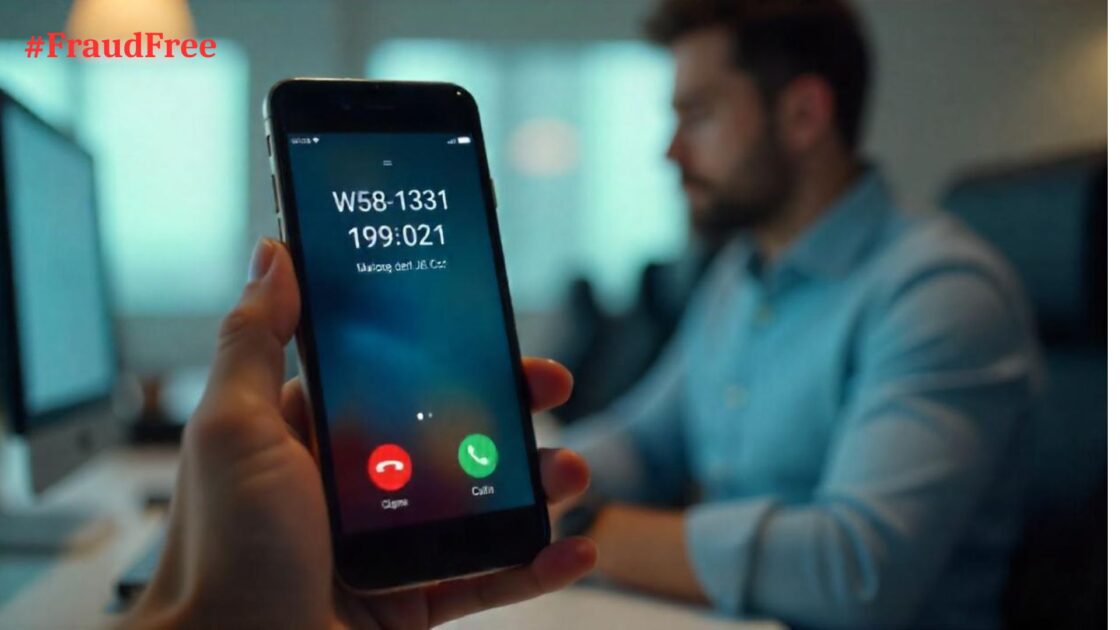Not only are your phones or apps getting upgraded, but the scammers, too, are becoming more tech-savvy and smarter. They now started targeting people by making international fake call.
Yes, you read it right, fake calls from the country code starting from +44 could be a scam.
In short, these scams are not limited to fake investment schemes or prepaid telegram tasks. Instead, scammers are using new methods to understand your activities and call from international numbers to trap you.
Let’s get into the details to understand how this scam works, ways you can protect yourself, and government initiatives to protect people from falling into it.
Country Code 44 Scam
With the rise of mobile technology and globalization, it is no longer challenging to connect with someone living across borders. However, this convenience has also given scammers new ways to exploit unsuspecting individuals.
If you’ve recently received a call from international numbers, such as +1 (USA/Canada), +44 (UK), or +971 (UAE), you may want to think twice before answering.
Using technology, scammers first hack data to get numbers that they can target. To make the call look authentic, they go deep to hack your activity details, for example, your orders using e-commerce apps, or your recent travel details, or activities related to tax payment, etc.
Sometimes, they make random calls, hoping to lure someone into their trap.
- Targeting Vulnerable Individuals
To make the overall process simpler, scammers generally filter out senior citizens or groups of individuals who are not so tech-savvy.
Such targeted individual easily fall into their fake schemes, making it easier for them to operate the scam
- Initial Contact from International Number
Scammers use technology to mimic legitimate phone numbers, making it appear as though the call is coming from a trusted source. To protect yourself, it is therefore important to learn how to check if a phone number is scam.
Now on receiving a call, people generally pick it out of curiosity. However, what happens next is beyond what a common person can think of.
Based on the data or details they have, they try to create a fear of ID hack or involvement of the person’s ID in some kind of criminal offense.
This scares people, and they, without any second thought, follow the call blindly.
Now, to make it easier for themselves, scammers generally play around with emotions by creating a situation of urgency that generally pushes individuals to make hasty decisions.
- Layered Communication
After the initial call, scammers may follow up with emails or texts to build credibility and keep the victim engaged. With this, the victim begins to trust that call.
Now, once they are successful in trapping the individual, they are all set to run the scam. They either claim ID hacking, criminal offenses, or other alarming scenarios.
People to avoid getting into trouble, follow the links or instructions provided to them that provide access to bank accounts to scammers.
By the time the person realizes that it’s a scam, the damage is already done.
International Fake Call Complaint
If you’re receiving suspicious international calls pretending to be from banks, government agencies, or tech support, follow these steps:
- Do not share personal or financial details.
- Note the caller’s number, time, and nature of the call.
- Block the number on your device.
- File a Cyber Crime Complaint.
- File a complaint at DoT’s Sanchar Saathi
Need Help? Register with us now! We will guide you with the complaint process and proper follow-ups to help you recover of losses.
How to Protect Yourself?
Mobile phones and technology have done more bad than good. But a little alertness can protect you from getting scammed. Here are some of the steps that you follow to protect yourself:
- Do not pick up calls from international numbers
- Avoid sharing personal information on the phone.
- Block & report suspicious numbers.
- Stay informed.
Government Initiatives to Combat Issues Related to International Fake Calls
With the increasing reports of such scams, the government took some initiatives. One such initiative is the launch of a system, called ‘International Incoming Spoofed Calls’, to recognize and block such FAKE calls.
This system was launched on 22nd October this year. The system proved to be successful in reducing the number of fraudulent calls by 90% in 2 months.
But along with the system, it is important for individuals to be more aware and alert while answering any call received from an unknown number.
Conclusion
No wonder technology will keep on evolving to make our lives easier and convenient, but at the same time, we must not forget that it could be a new gateway for scammers too.
The rise of such scams is a reminder that one must remain alert and cautious while clicking on any link or answering calls.
The government initiative has proven to be effective, but relying solely on technology is not a solution.
Your alertness and awareness are the only keys to protecting yourself from both mental and financial trauma.







